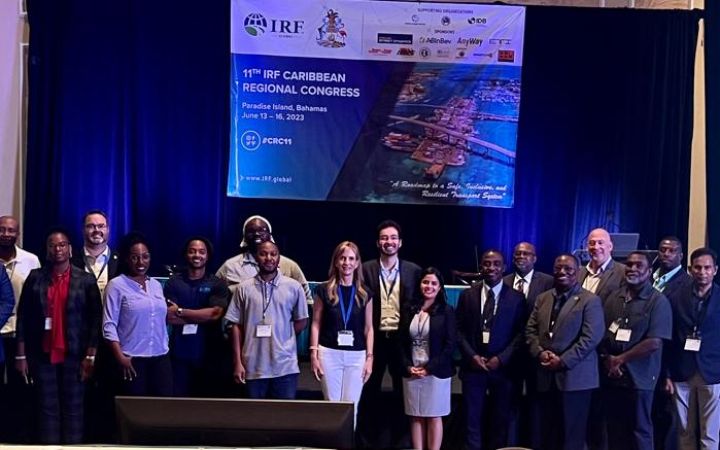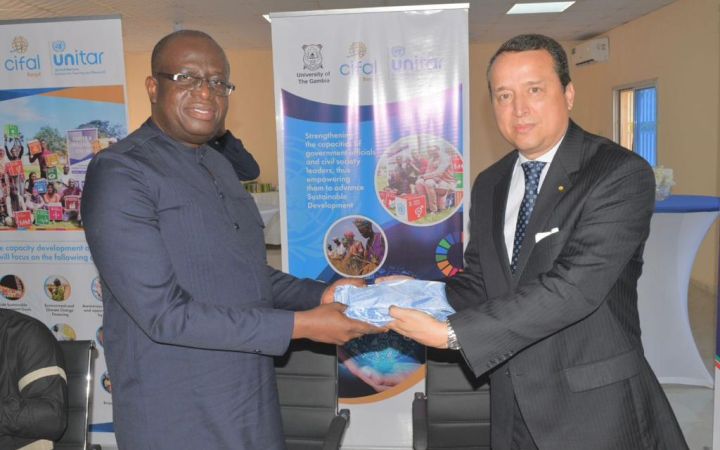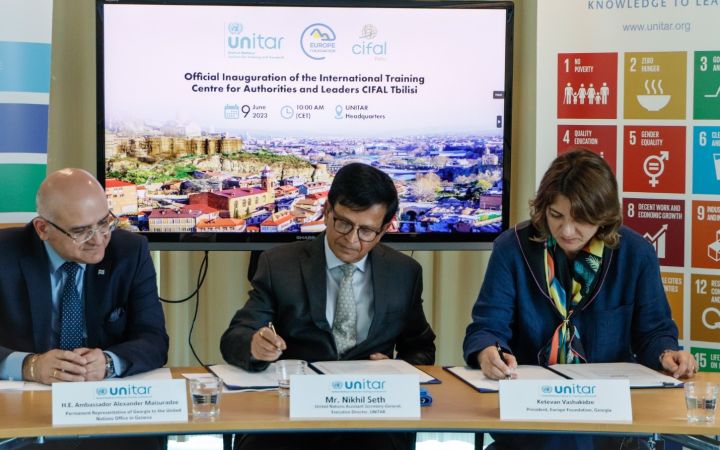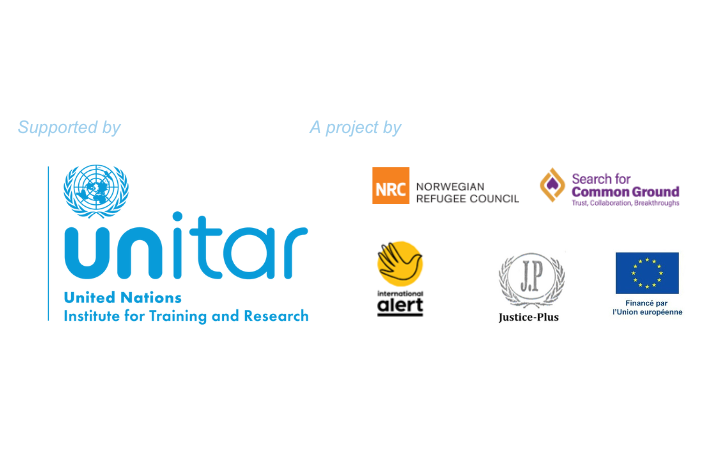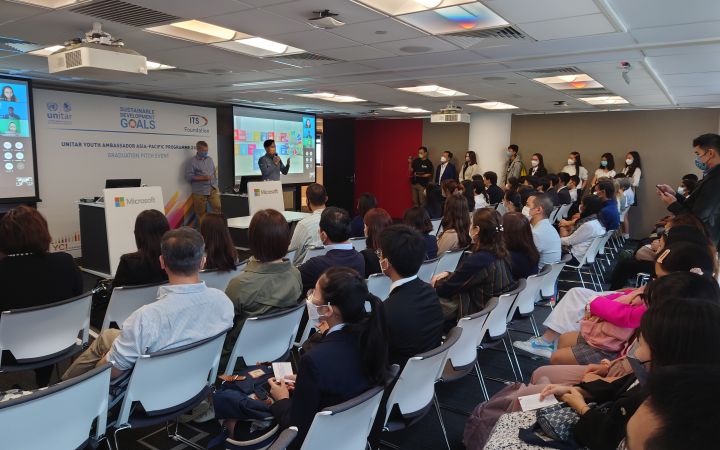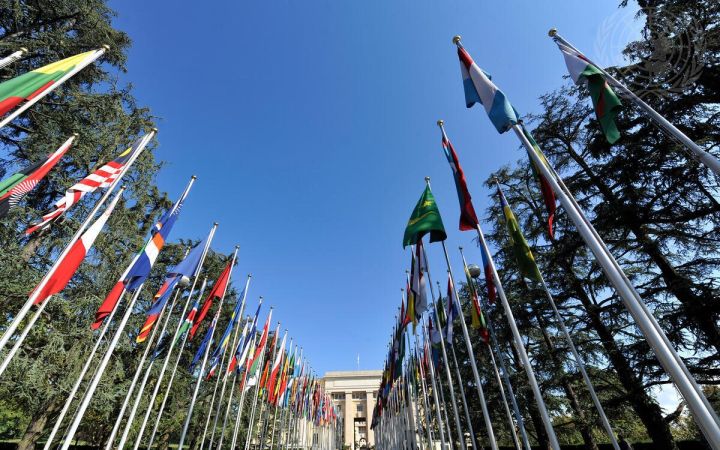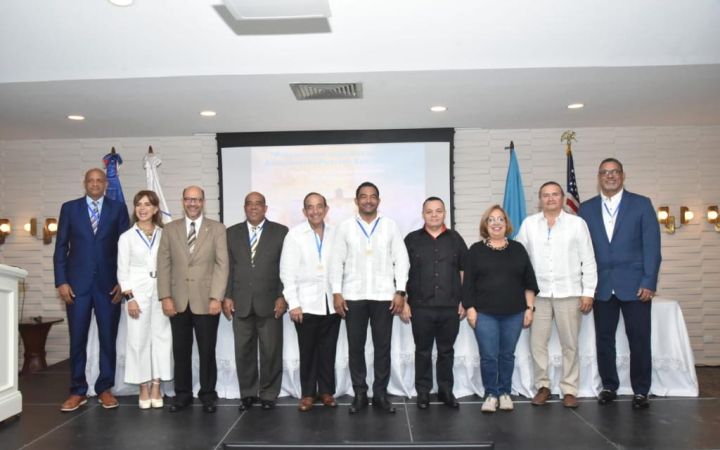Displaying 661 - 670 of 1639
14 June 2023, Nassau, Bahamas – UNITAR delivered a workshop on its Management Practices for Safer Roads Toolkit in the framework of the 11th IRF Caribbean Regional Congress in Nassau, Bahamas held from 13 to 16 June 2023.
13 June 2023, Banjul, The Gambia - The United Nations Institute for Training and Research (UNITAR) in partnership with the University of The Gambia (UTG) launched CIFAL Banjul on Tuesday 13 June 2023. The event was held at UTG’s Kanifing Campus and hosted by Professor Herbert Robinson, Vice Chancellor of the university.
9 June 2023, Geneva, Switzerland – In partnership with Europe Foundation (Georgia), UNITAR has established its 32nd CIFAL centre in Georgia, which will offer a range of learning opportunities on artificial intelligence, social inclusion, and effective to facilitate knowledge-sharing between government officials, leaders, and civil society members from the Caucasus region.
9 Juin 2023, Genève, Suisse - L'Institut des Nations Unies pour la Formation et la Recherche (UNITAR) et le Consortium Cohésion Sociale en RDC, constitué de Norwegian Refugee Council, de Search for Common Ground, d'International Alert et de Justice Plus, ont signé un accord pour que l'UNITAR soutienne le processus de capitalisation du Consortium pour le projet «Contribuer au renforcement de la cohésion sociale et à la stabilisation dans les provinces de l’Ituri et du Nord-Kivu» financé par l’Union Européenne.
June 13, 2023, Shanghai, China – China’s rapid socio-economic development and the significant increase in resident income have led to surging demand for road travel. This growing need has emphasized the critical importance of safer roads and responsible road users, prompting more pressing efforts to enhance public awareness and provide relevant public education on the topic of road safety.
8 June 2023, Hiroshima, Japan – The United Nations Institute for Training and Research (UNITAR) and ITS Education invite young people to apply to the Youth Ambassador Asia Pacific Programme 2023. The programme is open to Asia-Pacific high school students (aged 14–17 years) with a passion for global affairs and wants to engage with the international community.
7 June 2023, Hiroshima, Japan – UNITAR Division for Prosperity will host its first metaverse event “20 Years of Innovation: UNITAR Hiroshima Metaverse Award Ceremony” on 23 June 2023, from 5 to 6 p.m. JST (UTC+9). Three youths will be awarded for their stand-out videos for the UNITAR’s Video Challenge, which calls for videos featuring the role of the youth in digital innovation and promoting sustainable peace. Youths can still join the challenge, until 15 June, and be considered for the award. The award ceremony is open to all; register for access.
5 June 2023, Geneva, Switzerland - Hosting 35 international organizations and more than 250 NGOs, Geneva offers itself a whole series of potentially formative experiences. The particularity of the city makes it one of the first poles of world governance where international commitments in favor of humanity are taken in a daily basis. Hence, getting immerse into this multilateral working environment represents a unique opportunity to be at the forefront of international cooperation.
24 – 25 May, Puerto Plata, Dominican Republic – Being aware of the important role that country entry points play in the response to a disaster situation, especially in tourist destinations, CIFAL Merida and ASUR Group (Southeast Airport Group, ASUR), developed the seminar "Disaster Preparedness in Ports and Airports". This event was held in alliance with other regional stakeholders such as AERODOM (Dominican Airports); ASHONORTE (Association of Hotels, Restaurants and Tourism Enterprises of the North); and the Outreach Aid to the Americas and Community Port Resilience Program; and, for the first time, was carried out in the city of Puerto Plata in the Dominican Republic.
1 June 2023, Santo Domingo, Dominican Republic. The United Nations Institute for Training and Research (UNITAR), in partnership with the Dominican National Institute of Transit and Land Transportation (INTRANT), keeps pursuing its efforts to raise awareness, change attitudes, and ultimately reduce the number of alcohol-related road crashes in the Dominican Republic with the Autosobriety Training Programme to Prevent Drink-Driving.


